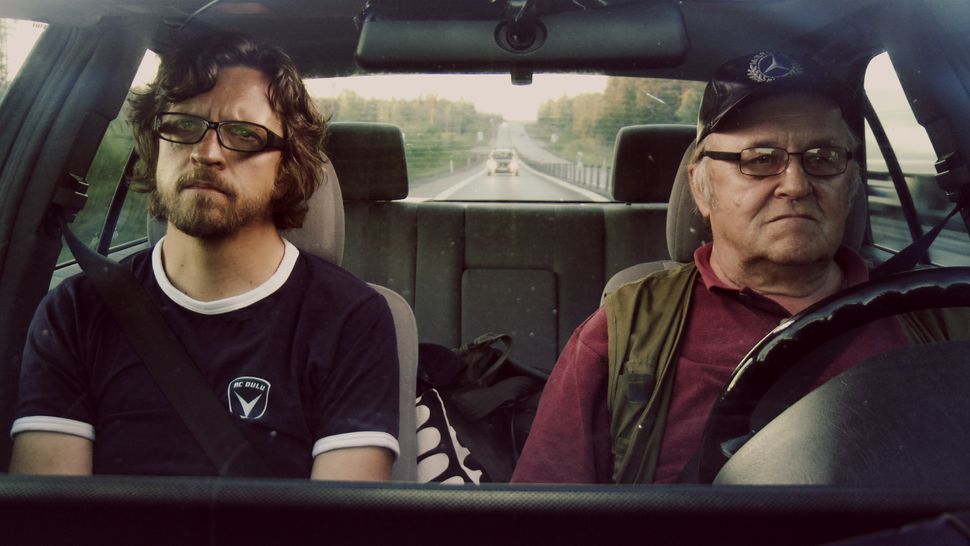
Finnish Blood, Swedish Heart (2013) Mika Ronkainen’s documentary film Finnish Blood, Swedish Heart had its premier in December at the Nordic Film Festival in London. We met the director at the festival to discuss the rise of Finnish documentary film.
The documentary is about the relationship between Finnish father and son who are making a road-trip from Finland to their former home in Gothenburg, Sweden. The movie turns into a musical documentary highlighting themes of Swedish-Finns, identity and longing for home. The story is accompanied by Finnish tango music played by Swedish-Finnish musicians.
The film has gained a wide global audience – and it has been screened, in addition to Finland and Sweden, in Germany, Spain, Britain and the United States.
– The language of the movie is universal. During the shooting process I realised that this is a great story that hasn’t been told yet, Ronkainen says.
The film won the Best Nordic Documentary Film award at the Göteborg Film Festival and the Best Film award at the Tampere Film Festival in Finland. For the director, the most important award has been the main actor’s, and his dear friend’s Kai Latvalehto’s nomination as the Swedish-Finn Of The Year.
–Arts and culture are tools for real changes. This movie has totally changed Kai’s life. Of course, I hope, that this film would have an even wider impact – but these developments cannot be predicted beforehand.
Finnish documentary films have been gaining great international attention and popularity in the recent years. Some of the great success stories have been The Steam of Life (2009) by Joonas Berghäll and Mika Hotakainen and The Punk Syndrome(2012).
Why do you think Finnish documentaries are so popular right now?
–I believe that the commercial pressures are not as strong with documentary films as when making fiction films. First and foremost, I want to make documentaries for myself, the director concludes.
